Albert Einstein's Controversial 'God Letter' Fetches $2.89 Million At Auction
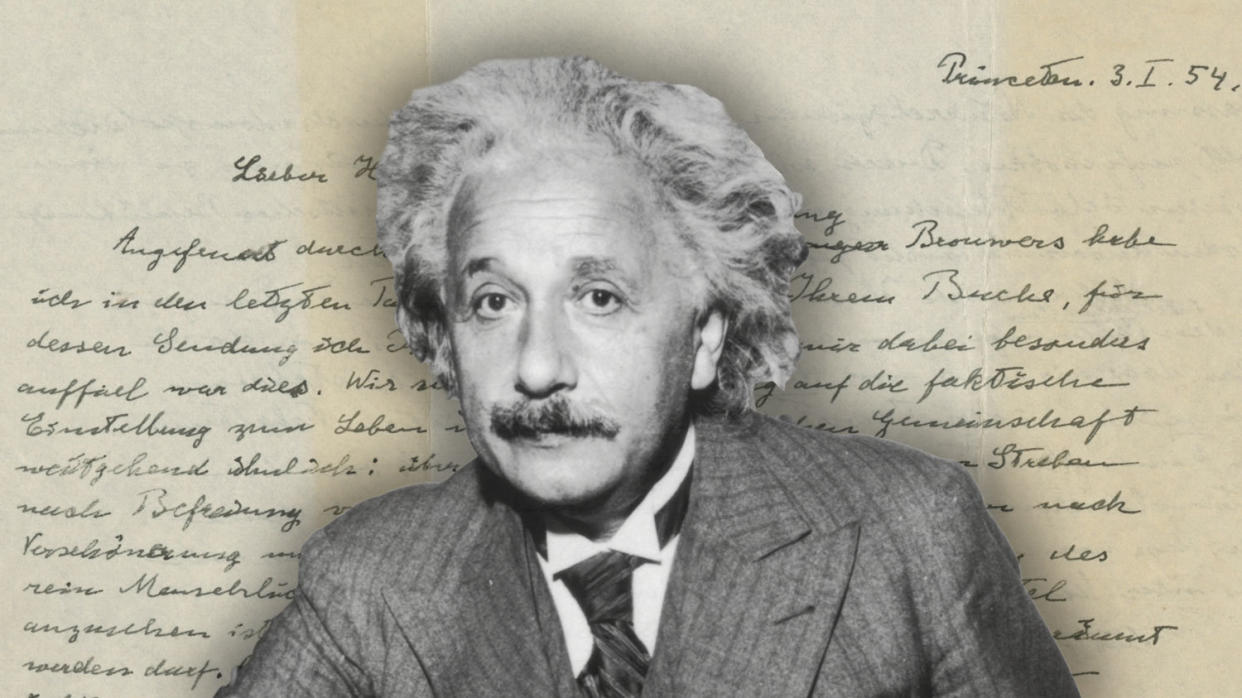
A private letter penned by Albert Einstein in which he characterizes religious beliefs as “childish superstitions” fetched a record-breaking $2.89 million at an auction this week.
The one-and-a-half-page handwritten letter is dated Jan. 3, 1954. The Nobel prizewinner sent it to religious philosopher Eric Gutkind in response to Gutkind’s book, “Choose Life: The Biblical Call to Revolt.”
An agent for the unnamed buyer obtained the letter on Tuesday following a vigorous 4-minute competition that saw the price rise to nearly twice Sotheby’s highest prediction of $1.5 million. The sales price set a world auction record for an Einstein letter.
“Collectors worldwide competed very strongly, in the room, over the phone and online,” said Sven Becker, head of books and manuscripts at Christie’s New York.
Dubbed the “God Letter,” Einstein, a German-born Jew who settled in the U.S. in the 1930s, disagreed with several of Gutkind’s theological convictions and expounded his own thoughts on the Almighty and religion.
“The word God is for me nothing more than the expression and product of human weakness, the Bible a collection of honorable, but still purely primitive, legends which are nevertheless pretty childish,” Einstein wrote in German.
Christie’s books and manuscripts specialist Peter Klarnet said the letter “is one of the definitive statements in the religion vs. science debate.”
At the time of its writing, Einstein was 74 years old and living in Princeton, New Jersey. He is considered one the most celebrated minds of the 20th century and is best known for his general theory of relativity and the iconic E=mc2 equation, which says energy and mass are interchangeable.
In the letter to Gutkind, the renowned physicist wrote of his love of the Jewish people, to whom he said he gladly belonged. But he also said Judaism, “like all other religions,” is an “incarnation of primitive superstition.”
“No interpretation, no matter how subtle, can change anything about this [for me],” Einstein wrote.
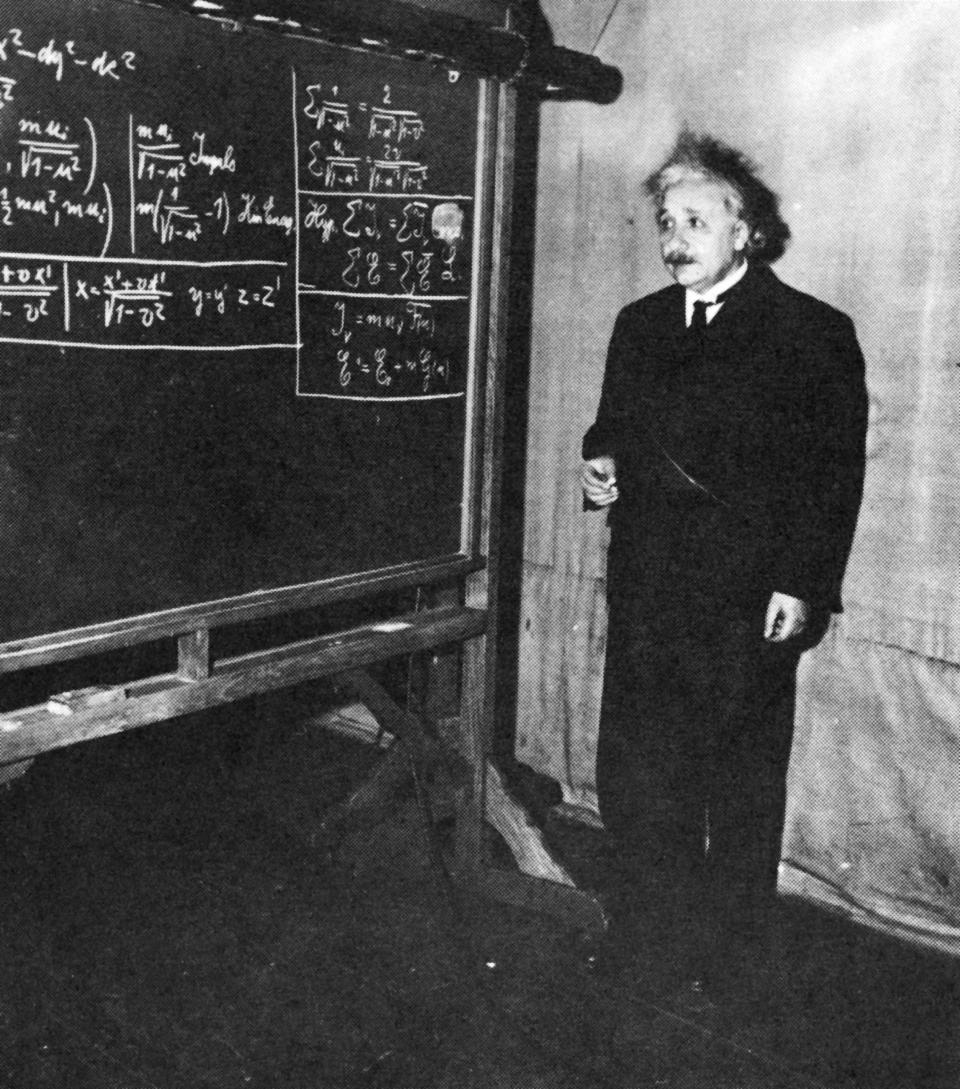
The missive, penned roughly 15 months before Einstein died, was auctioned with the original envelope, stamp and postmark. It was first sold shortly after his death and has been in private hands ever since.
It was last sold on eBay in 2012 for $3,000,100, meaning the latest anonymous seller failed to make a profit. However, the person who sold the letter in that transaction had made a substantial profit, having paid $404,000 for it in 2008.
At the time of the eBay auction, The New York Times described the letter as having “poured gasoline on the culture wars between science and religion.” Among the bidders who reportedly lost out in 2008 was well-known atheist and scientist Richard Dawkins.
Einstein’s letter concluded with, “friendly thanks and best wishes.” He signed it A. Einstein.
Click here for a full translation of the letter
Send David Lohr an email or follow him on Facebook and Twitter.
Love HuffPost? Become a founding member of HuffPost Plus today.
Related...
Albert Einstein On The Spirituality That Comes From Scientific Inquiry
Who Was More Insightful: Albert Einstein or Nikola Tesla?
Albert Einstein Sure Wrote Some Racist Things In His Diaries
Also on HuffPost
Celebrated picture dated 18 march 1951,

Picture taken in Princeton in 19
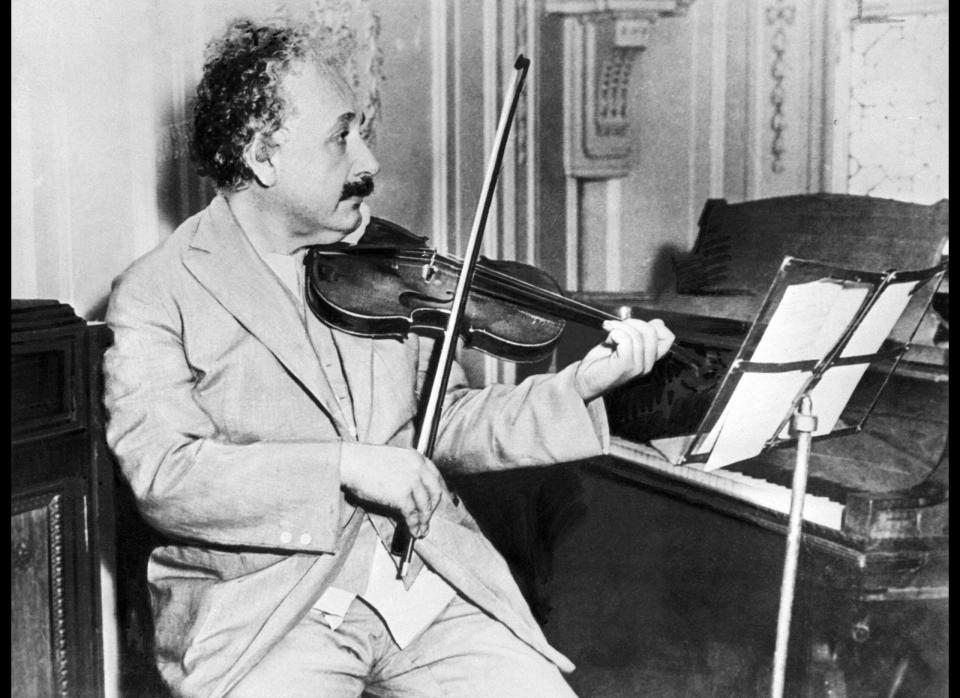
German-born Swiss-US physicist Albert Einstein, au
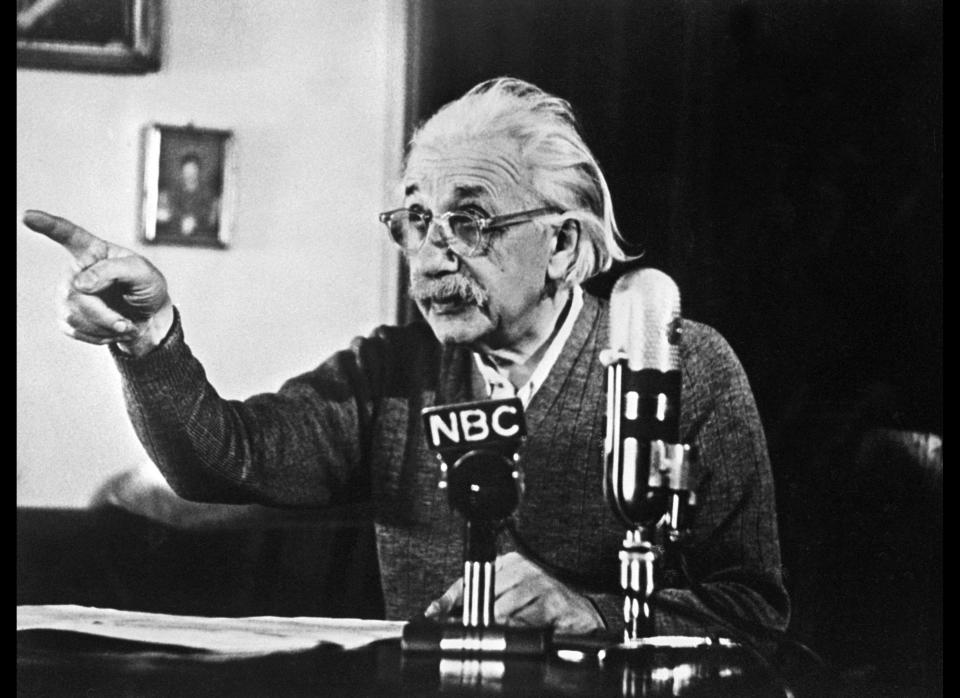
Portrait taken 06 February 1938 at Princeton Unive
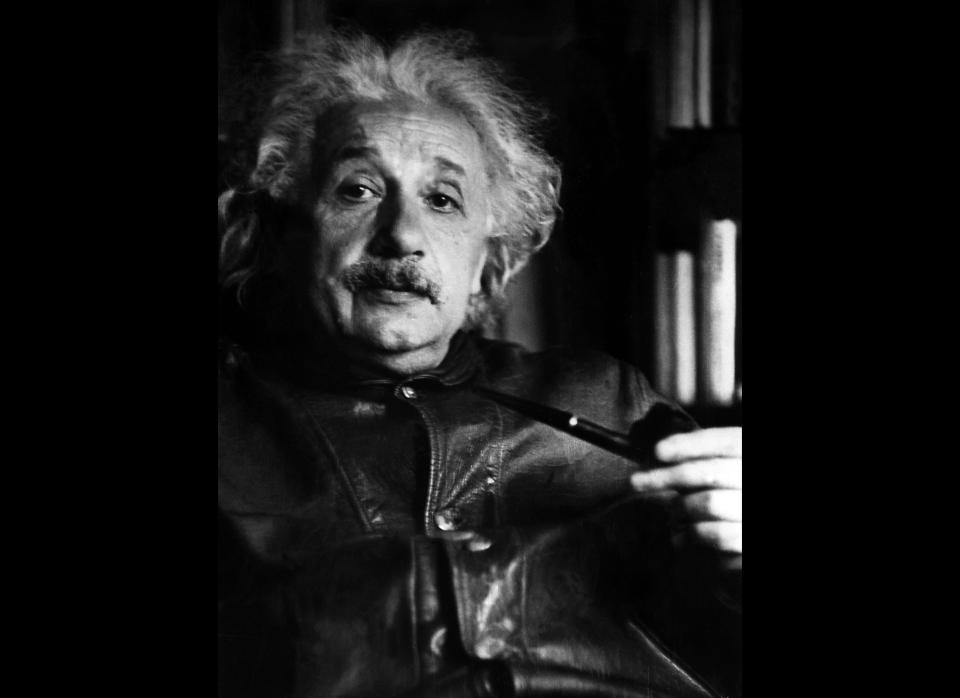
An undated portrait of German-born Swis

An undated portrait of German-born Swiss

Picture taken 10 February 1933 in El Mirador Hotel

Indian prime minister Pandit Jawaharlal
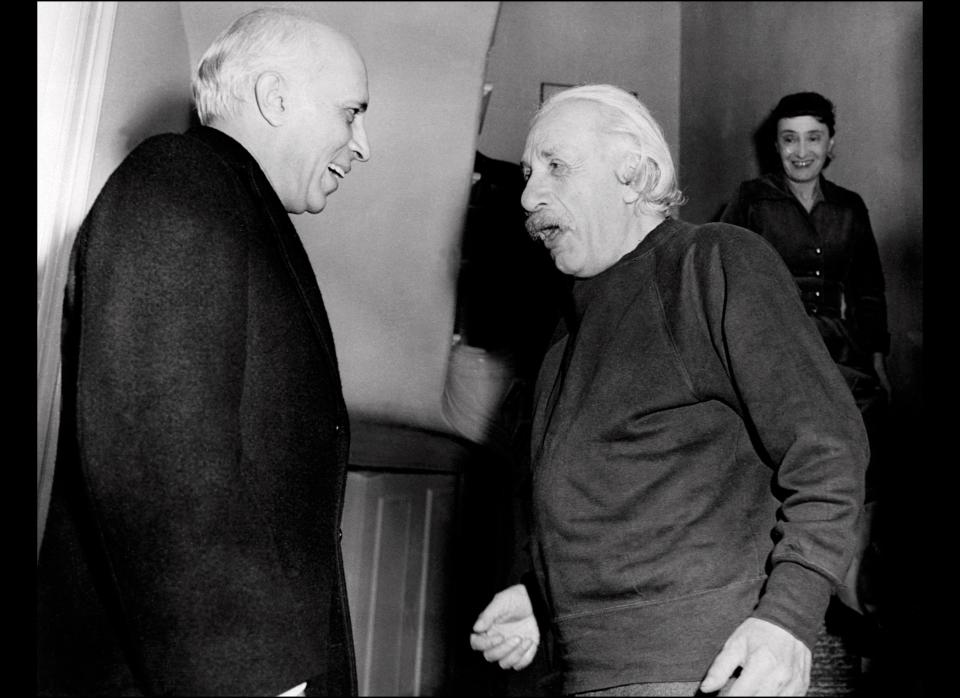
Portrait of German-born Swiss-US physici
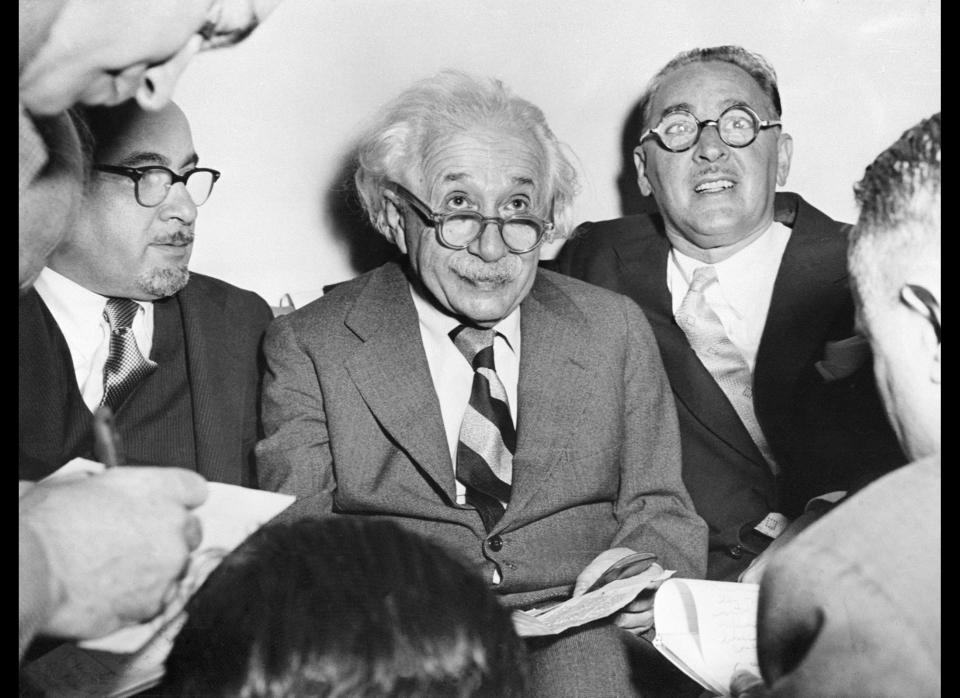
Portrait taken in 1950 of German-born Swiss-US phy

This article originally appeared on HuffPost.

